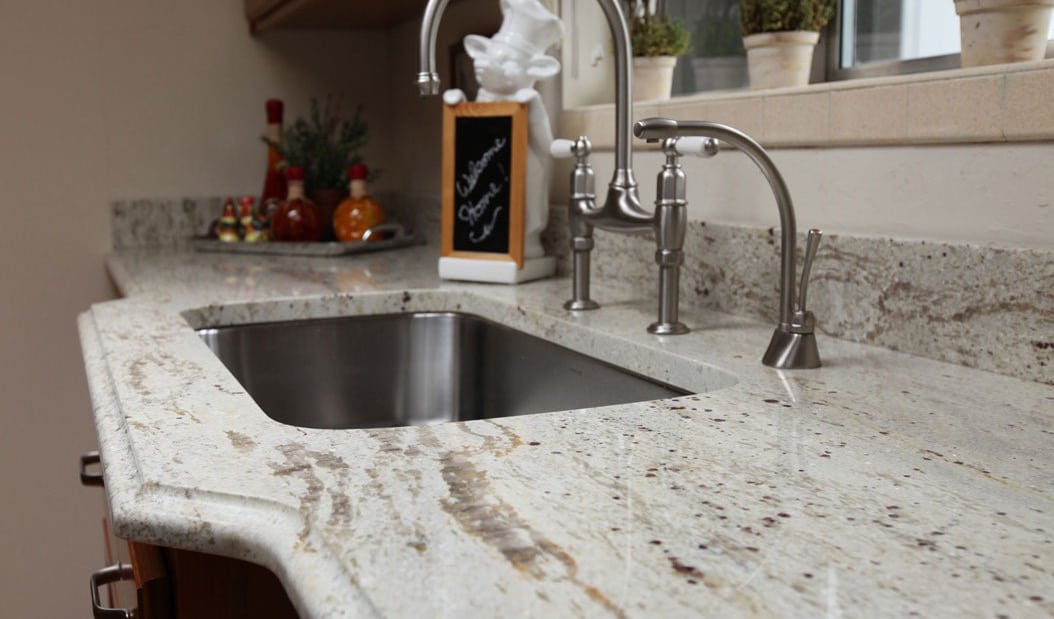
Check out this look in our Project Gallery.
As two of the most popular materials chosen for countertops, it’s no surprise that granite and quartz both have a lot to offer. Aesthetically, structurally, and economically, the two types of stone exhibit a substantial amount of overlap. However, it’s the little things that count, right? So today, we want to talk to you about the little differences between granite and quartz, and how to choose the right material for your countertops.
Perhaps the most classic natural stone for countertops, granite countertops are fairly easy to maintain and resilient to the wear and tear of daily life. Granite won’t blister or melt when exposed to heat; in other words, you can place a hot pan directly on a granite countertop for a brief period of time without having to worry about leaving a scar. It’s also quite difficult to scratch — some experts even suggest that you can cut on granite without a cutting board, though this would almost certainly dull your knives.
Granite is a porous stone. This means that untreated granite may be prone to staining from spills or oils. Because of this, it’s recommended that your granite countertops be regularly resealed. This typically should be done once per year. Repairing a damaged granite countertop should always be handled by a professional.
Aesthetically, there are many different patterns and naturally occurring colors of granite available. Though more exotic types of granite may be more costly, they’re a great option for adding a unique spark to your kitchen.
In terms of sustainability, granite isn’t technically considered a green resource due to the fact that it takes thousands of years to form naturally. It’s worth noting that the stone industry has worked to adopt more responsible production practices, and that granite may still be considered eco-friendly as compared to other materials thanks to the fact that it lasts a lifetime, contains no harmful chemicals, and doesn’t emit radiation or gas.
Though many characteristics of granite are also true of quartz, it does exhibit a few innate differences. For starters, where granite is naturally quaried from the earth as chunks of raw stone, quartz countertops are comprised of crushed quartz mixed with a small amount of resin. Therefore, quartz may be considered a slightly less eco-friendly option than granite.
Because quartz is manufactured, it comes in a much more diverse variety of colors. Though price varies according to the exact style of quartz countertop you’re looking at, it is typically slightly more costly than granite. The fact that quartz comes in a solid color as opposed to a swirling pattern means that hiding seams and repairs is often easier as compared to granite.
When it comes to resiliency, quartz wins out over granite. Though both materials are equally strong, quartz is more flexible, which makes it easier to work with during the installation process. Quartz is non-porous and doesn’t require sealing. It’s natural stain and bacteria resistant, so spills are a non-issue. One note that should be made is that quartz is prone to discoloration when exposed to direct UV light; if you happen to have a large skylight above where you hope to install your counters, this may be worth considering.
For more information on the pros and cons of granite versus quartz countertops, feel free to check out this article by Countertop Investigator. https://countertopinvestigator.com/quartz-granite/
